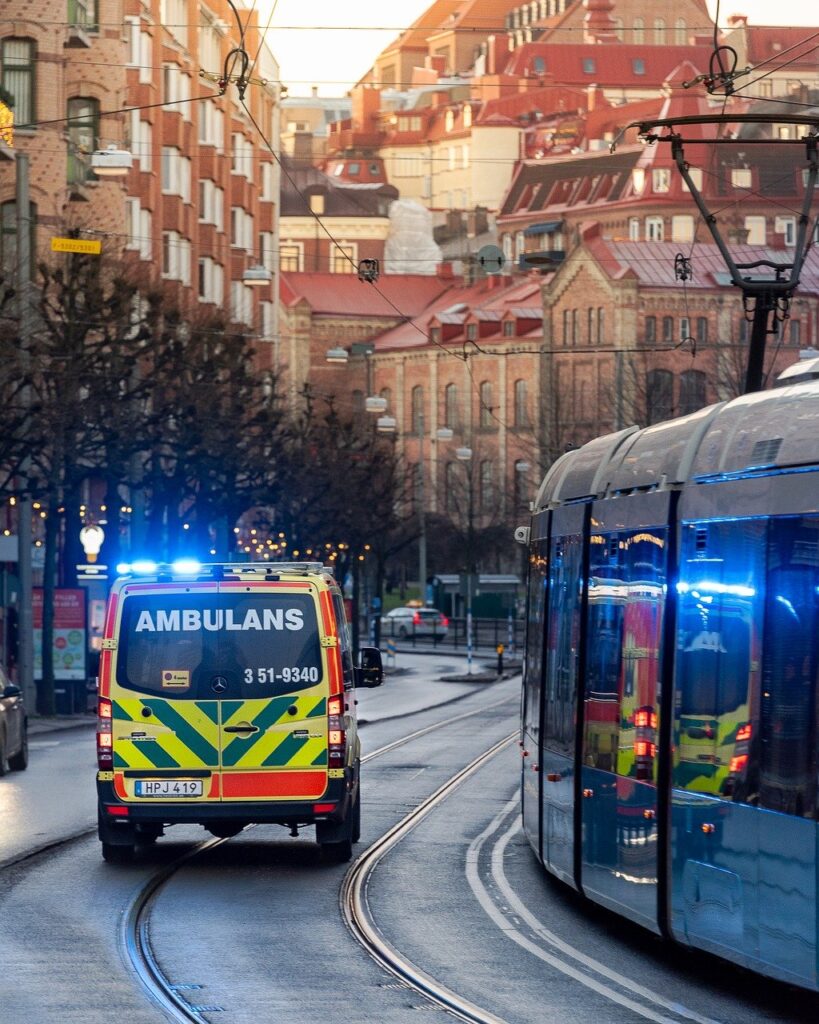Traveling to a foreign country can be an exciting and life-changing experience, but it requires careful planning and preparation. Whether you’re a first-time traveler or a seasoned globetrotter, understanding key aspects of international travel can help ensure your trip is smooth, enjoyable, and safe. Here are 20 essential things everyone should know before traveling to a foreign country.
1. Research Local Customs and Etiquette
Every country has its own set of social norms, traditions, and etiquette. Understanding these cultural differences is crucial to avoid unintentional offenses and ensure a respectful experience. For example, in Japan, bowing is a traditional greeting, while in many Middle Eastern countries, handshakes may be reserved for those of the same gender. In some places, tipping is expected, while in others, it’s not customary.
To prepare, read travel guides, watch YouTube videos about local customs, or ask locals online about specific practices. Understanding basic greetings, dining etiquette, and body language can make a big difference in how you’re received.
2. Check Passport and Visa Requirements
Ensure that your passport is valid for at least six months beyond the date of your intended return to your home country. Some countries will not allow you entry if your passport is close to expiration. Additionally, different countries have different visa requirements. Some may offer visa-on-arrival, while others require you to apply in advance.
Research visa requirements for the country you’re visiting and apply well in advance, as processing times can vary. You can find the latest information on the embassy or consulate website of the country you plan to visit.
3. Make Copies of Important Documents
Before you leave for your trip, make photocopies or digital copies of important documents such as your passport, visa, flight tickets, hotel reservations, insurance information, and emergency contact details. This will help you in case any of these items are lost or stolen while abroad. Consider storing them in a secure cloud storage system or emailing them to yourself.
4. Understand Health and Safety Precautions

Research whether you need any vaccinations or health precautions before traveling to your destination. Some countries may require proof of vaccinations (such as yellow fever or hepatitis A/B), while others may recommend certain vaccines based on the area’s health risks.
In addition, check if your home health insurance covers international travel. If not, consider purchasing travel insurance that includes medical coverage. Be aware of the location of local hospitals or clinics in case of an emergency.
5. Learn Basic Phrases in the Local Language
While many countries have English speakers, it’s always helpful and respectful to learn a few key phrases in the local language. Even basic greetings like “hello,” “thank you,” and “goodbye” can make a big difference in how locals perceive you. Also, knowing how to ask for help in emergencies (like “Where is the nearest hospital?” or “I’m lost”) can come in handy.
6. Understand Currency Exchange Rates and Payment Methods
Before you go, familiarize yourself with the currency used in your destination country and understand the exchange rate. Consider using a currency converter app to keep track of how much things cost in your home currency. If your credit card company offers no foreign transaction fees, consider using your card for purchases to avoid carrying large sums of cash.
It’s also a good idea to inform your bank or credit card company of your travel plans to avoid your accounts being flagged for suspicious activity when used abroad.
7. Plan Your Budget Wisely
When traveling abroad, you should have a budget in mind. Factor in accommodation, food, transportation, activities, and unforeseen expenses. Keep in mind that some destinations might be more expensive than others, especially if you’re visiting major cities or popular tourist destinations.
It’s often cheaper to eat where locals eat, take public transport, and avoid touristy attractions unless they’re a “must-see” for you. Carry a mix of payment methods (credit card, local currency, and possibly a travel money card) to ensure you’re never without options.
8. Buy Travel Insurance
Travel insurance is essential for covering unexpected events like trip cancellations, lost baggage, or medical emergencies. While some travelers may skip this expense, it can save you a lot of stress and money in case something goes wrong.
Make sure your travel insurance covers not only medical emergencies but also trip interruption, lost belongings, and any adventure activities you plan to do (like hiking, diving, or skiing).
9. Know Emergency Numbers and Locations

When traveling internationally, you should know the emergency phone numbers for police, fire, and medical services in the country you’re visiting. In the U.S., the number is 911, but other countries have different numbers. For example, in the U.K., it’s 999, while in Australia, it’s 000.
Write down the local emergency numbers and the address of your country’s embassy or consulate in the area. It’s a good idea to carry this information with you in case you need assistance.
10. Be Aware of Local Laws and Regulations
Different countries have different laws that may surprise or even shock you. For instance, in some countries, drug use is heavily penalized, and even something as innocent as chewing gum may be illegal. Public behavior that’s considered acceptable in your home country may not be tolerated elsewhere.
Before you go, do some research on local laws regarding alcohol consumption, smoking, dress codes, and other cultural taboos. This will help you avoid breaking any laws and getting into trouble.
11. Prepare for Jet Lag and Time Zone Differences
Traveling across time zones can disrupt your sleep schedule and lead to jet lag. This can affect your energy levels and make the first few days of your trip more challenging.
To mitigate jet lag, try to adjust your sleep schedule before you leave. Once you arrive at your destination, spend time outside in the sunlight, stay hydrated, and avoid caffeine and alcohol, which can worsen jet lag.
12. Consider Safety and Security
While traveling, it’s important to stay informed about the safety situation in the country you’re visiting. Some countries may have areas known for political unrest, high crime rates, or health risks like outbreaks of disease.
Check your government’s travel advisories for up-to-date information on safety and security in the country you plan to visit. Stay vigilant while exploring and avoid risky situations. When possible, use official taxis, rideshares, or public transportation instead of walking alone at night.
13. Pack Light, but Pack Smart
One of the most important tips for international travel is to pack light. Packing too much can be a burden, and it can be costly if you need to check in multiple bags on flights.
Stick to the essentials and focus on versatile clothing that can be layered for different weather conditions. Pack only what you truly need, but make sure to bring any medications, chargers, toiletries, and an adapter for electronics. Most importantly, pack an extra pair of clothes in your carry-on in case your checked luggage is delayed or lost.
14. Use Technology to Your Advantage
There are a number of apps and tools that can help make your international travel experience smoother. Download apps for translation, navigation, currency conversion, and even local transportation services.
Google Maps, for instance, can help you get around unfamiliar cities, while apps like Duolingo can help you with basic language skills. Additionally, travel apps like TripIt can keep your itinerary organized.
15. Get Familiar with Local Transportation
Every country has its own transportation system, and understanding how it works will save you time and money. In many cities, public transportation is the most affordable and efficient way to get around. In others, taxis or rideshare services like Uber or Lyft may be the best option.
If you’re traveling to a rural area, check if you need to rent a car, or if there are organized tours to help you explore. Make sure you’re aware of safety standards, such as seat belts, and understand the rules for hailing a taxi or using ride-sharing apps.
16. Respect the Environment and Local Resources

Sustainable travel is an important consideration when visiting a foreign country. Be mindful of your impact on the environment by avoiding plastic waste, minimizing water usage, and respecting local wildlife.
Before you go, research the country’s efforts to protect its natural resources and wildlife. You can also consider supporting eco-friendly businesses, staying at sustainable accommodations, and participating in activities that promote conservation.
17. Stay Connected and Secure Your Devices
When traveling abroad, your digital security should be a priority. Avoid connecting to public Wi-Fi networks for sensitive transactions or logging into accounts unless you use a reliable VPN (Virtual Private Network).
Also, make sure your devices are password-protected, and consider having a backup plan (like a portable charger) to stay connected in case your devices run out of battery or are lost/stolen.
18. Adjust to the Local Cuisine
Trying local food is one of the highlights of any trip, but you should be cautious about how your body will react to unfamiliar ingredients or food preparation practices. Some travelers experience stomach issues after eating street food, especially in areas where sanitation might not meet your home country’s standards.
Start with smaller portions and avoid drinking tap water unless you’re sure it’s safe. Bottled water is a safe bet in many countries. If you have food allergies or sensitivities, make sure to communicate this clearly in the local language.
19. Respect Local Religion and Spiritual Practices
Religion plays a significant role in many cultures around the world, and understanding the importance of local religious practices is essential for respectful travel. Be mindful of when and where you visit religious sites like temples, churches, and mosques. Some places may require you to dress modestly, remove your shoes, or observe certain rituals.
I am Hamed Mohamed
26 years ago
From Egypt
I have 5 years experience in sales